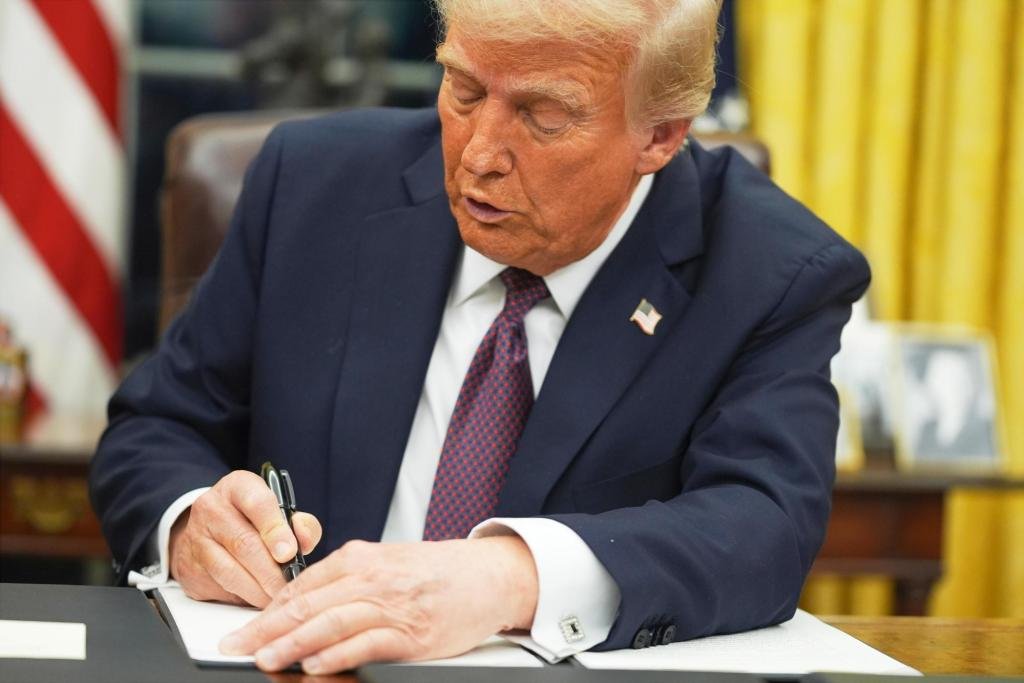How Trump’s Tariff Threat Could Spoil American Breakfasts and Ripple Through Brazil’s Economy
On a bustling morning in São Paulo, the aroma of freshly brewed coffee mingles with the bright scent of citrus as hundreds of vendors prepare their stalls for the daily influx of customers. Yet, looming over this industrious scene is a specter that threatens to upend the breakfast tables of Americans across the country. President Donald Trump’s recently announced plan to levy a staggering 50% tariff on Brazilian imports has stirred a vortex of uncertainty for one of the most beloved morning rituals in the U.S.
From the coffee cups of Seattle to the brunch tables of New York, the fallout from these tariffs could reshape the cost structure of breakfast staples. Coffee and orange juice, two essential components of the American morning diet, stand at the forefront of this potential upheaval. With the clock ticking toward the August deadline for negotiations, the stakes couldn’t be higher for both nations.
Political Underpinnings of Economic Decisions
Trump’s tariff threat appears to be heavily politically motivated, correlating with Brazil’s ongoing Supreme Court trial of former President Jair Bolsonaro, a man once in close alignment with the U.S. leader. “This tariff is not just about trade; it’s about political maneuvering,” claims João Silva, an economist at the University of São Paulo who specializes in international trade. “It targets Brazil’s internal politics while using American consumers as leverage.”
The Brazilian government has voiced strong opposition, with President Luiz Inácio Lula da Silva committing to a reciprocal response. “These tariffs are not just a financial burden; they challenge the foundations of fair trade between our nations,” Lula stated in a press conference following Trump’s announcement.
The Direct Impact on American Consumers
According to data from the U.S. Department of Agriculture, Brazil supplies approximately 30% of the American coffee market, while citrus exports are equally significant—about 60% of U.S. orange juice imports come from Brazil. If the tariffs go into effect, consumers can expect a sharp increase in the price of coffee and orange juice. Marcos Matos, executive director of Brazil’s coffee exporters council, articulated the concern succinctly: “The American consumer will face the brunt of this by paying much more for a basic breakfast.”
- Brazil’s coffee sector: 30% of U.S. market supply.
- Brazil accounts for 60% of U.S. orange juice imports.
- Increased tariffs could lead to higher prices across the board for breakfast products.
Interdependence in Trade Relationships
Despite Brazil’s vast agricultural capabilities, their dependency on American markets creates a precarious balance. Ibiapaba Netto, director at the Brazilian association for citrus juice exporters, commented, “We have fostered a relationship over decades; we fulfill the needs of the American breakfast table while benefiting from a lucrative market. These tariffs hurt both sides.”
Reports indicate that approximately $6.8 billion in trade surpluses were recorded between the U.S. and Brazil last year, further complicating the implications of Trump’s tariffs. Some analysts argue that this could lead Brazil to seek alternative markets, threatening long-term relationships and trade agreements. “We are not simply going to stand idle; we will explore other avenues,” Lula affirmed.
An Unexpected Opportunity Turns Sour
The initial announcement in April regarding a 10% tariff had induced a fleeting sense of relief among Brazilian farmers, who had previously feared harsher penalties faced by countries like Canada and Mexico. But the anticipated 50% hike has shifted sentiment radically. Marcos Jank, a professor at Insper, highlighted this unexpected reversal: “We thought we’d escaped the worst, only to find ourselves facing one of the highest tariffs. Our optimism has quickly turned to despair.”
Brazilian industries now stand at a crossroads, with major players such as Embraer, a leading airline manufacturer, assessing potential losses in a market where 60% of its revenue is generated from U.S. transactions. “It’s crucial that we communicate our concerns effectively to mitigate any fallout,” an Embraer spokesperson stated. “Our future in the U.S. market hinges on these negotiations.”
The Ripple Effects on Brazil’s Agriculture
As the news of the tariffs permeates Brazilian markets, the implications go beyond coffee and citrus. The beef industry, too, is feeling the strain. Roberto Perosa, president of the Brazilian Association of Meat Exporting Industries, voiced urgency in addressing the political turmoil. “We are not just involved in a trade discussion; we are engaging in a struggle for our livelihoods,” he remarked. “This not only affects Brazil but also threatens American consumers who benefit from our competitive prices.”
The intertwined nature of U.S.-Brazil trade is vividly illustrated through the exchanges in ethanol and sugar markets. Brazil has been a significant supplier of ethanol, and grievances about these tariffs have spurred discussions about mutual concessions. “It’s about finding common ground,” said Luiz Rua, the secretary for trade and international relations in Brazil’s Ministry of Agriculture. “If we can collaborate on issues like ethanol, we might find our way through this conflict.”
The unfolding drama surrounding tariffs and trade serves as a reminder of how closely knit the global economy is, particularly in the agriculture sector. As discussions continue, both nations remain hopeful that diplomacy may ultimately soften the bitterness of political rivalry, ensuring breakfast plates remain full and relatively affordable from São Paulo to Seattle.





